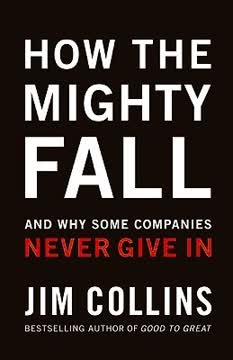Key Takeaways
1. Leadership is Influence, Not Position
"He who thinketh he leadeth and hath no one following him is only taking a walk."
Leadership defined. Leadership is not about titles or positions, but about the ability to influence others. True leadership is measured by the number of people willing to follow you and the depth of their commitment. This influence is earned through relationships, trust, and the ability to add value to others.
Levels of leadership. There are five levels of leadership:
- Position (rights)
- Permission (relationships)
- Production (results)
- People Development (reproduction)
- Personhood (respect)
As leaders progress through these levels, their influence grows, and their leadership becomes more effective and impactful. The goal is to reach the highest level, where people follow because of who the leader is and what they represent.
2. Prioritization is the Key to Effective Leadership
"You cannot overestimate the unimportance of practically everything."
The Pareto Principle. Effective leaders understand that 20% of their activities will account for 80% of their results. By focusing on the vital few tasks that truly matter, leaders can maximize their impact and productivity.
Prioritization strategies:
- Identify the most important tasks that align with your goals
- Schedule these tasks during your most productive hours
- Delegate or eliminate low-priority tasks
- Regularly review and adjust priorities
By mastering the art of prioritization, leaders can avoid being overwhelmed by trivial matters and maintain focus on what truly drives success. This skill allows leaders to make the most of their limited time and resources, ensuring they're always working on what matters most.
3. Integrity: The Foundation of Trustworthy Leadership
"Integrity is not what we do so much as who we are. And who we are, in turn, determines what we do."
Building trust. Integrity is the cornerstone of leadership because it builds trust. When leaders consistently demonstrate honesty, ethical behavior, and follow through on their commitments, they earn the respect and loyalty of their followers. This trust is essential for influencing others and achieving long-term success.
Living with integrity:
- Align your actions with your words
- Make decisions based on principles, not convenience
- Take responsibility for your mistakes
- Be transparent in your dealings with others
- Consistently uphold your values, even when it's difficult
Integrity is not just about being honest; it's about being whole and undivided in your character. Leaders with integrity create a culture of trust and ethical behavior that permeates their entire organization, leading to stronger relationships, increased productivity, and sustainable success.
4. Effective Leaders Create Positive Change
"Change the leader, change the organization. Everything rises and falls on leadership!"
Embracing change. Leaders must not only adapt to change but actively drive it. They understand that stagnation leads to decline, while positive change leads to growth and improvement. Effective leaders create an environment where change is welcomed and seen as an opportunity rather than a threat.
Implementing change:
- Clearly communicate the vision for change
- Involve key stakeholders in the change process
- Address resistance with empathy and understanding
- Provide necessary resources and support
- Celebrate small wins to build momentum
Leaders must also be willing to change themselves before expecting others to change. By modeling adaptability and continuous improvement, leaders inspire their teams to embrace change and innovation, keeping their organizations competitive and relevant in a rapidly evolving world.
5. Problem-Solving Skills are Essential for Leadership
"A test of a leader is the ability to recognize a problem before it becomes an emergency."
Proactive problem-solving. Effective leaders anticipate potential issues and address them before they escalate. They develop a keen sense of awareness and the ability to identify emerging challenges that others might overlook.
Problem-solving process:
- Identify the problem
- Gather relevant information
- Generate possible solutions
- Evaluate and select the best solution
- Implement the solution
- Monitor and adjust as needed
Leaders should also empower their teams to solve problems independently. By teaching problem-solving skills and creating an environment where creative solutions are encouraged, leaders can build a more resilient and adaptable organization. This approach not only resolves immediate issues but also develops the critical thinking abilities of team members, preparing them for future leadership roles.
6. A Positive Attitude Amplifies Leadership Impact
"Life is 10 percent what happens to me and 90 percent how I react to it."
Attitude is contagious. A leader's attitude sets the tone for the entire organization. Positive leaders inspire confidence, creativity, and resilience in their teams, while negative attitudes can spread quickly and undermine morale and productivity.
Cultivating a positive attitude:
- Practice gratitude daily
- Focus on solutions rather than problems
- Surround yourself with positive influences
- Learn from setbacks and view them as opportunities for growth
- Celebrate successes, both big and small
A positive attitude doesn't mean ignoring problems or being unrealistic. Instead, it's about approaching challenges with optimism and determination. Leaders with a positive attitude are better equipped to motivate their teams, navigate difficulties, and maintain perspective during stressful times. This positivity becomes a powerful force multiplier, enhancing the leader's influence and the organization's overall performance.
7. Developing People is the Highest Calling of Leadership
"The growth and development of people is the highest calling of leadership."
Invest in others. Great leaders understand that their ultimate legacy is not what they personally achieve, but how they develop and empower others. By investing time and resources in developing their team members, leaders create a ripple effect of positive impact that extends far beyond their own reach.
Strategies for developing people:
- Provide challenging assignments and opportunities for growth
- Offer regular feedback and coaching
- Create mentorship programs
- Encourage continuous learning and skill development
- Recognize and reward growth and achievement
When leaders prioritize the development of their team, they not only improve individual performance but also build a stronger, more capable organization. This focus on people development creates a culture of continuous improvement, increased engagement, and loyalty, ultimately leading to sustainable success for both individuals and the organization as a whole.
8. Vision is the Indispensable Quality of Leadership
"All great leaders possess two things: They know where they are going, and they are able to persuade others to follow."
Crafting a compelling vision. A clear and inspiring vision provides direction and purpose for an organization. It motivates people to work towards a common goal and helps align efforts across the team or organization.
Elements of an effective vision:
- Clear and concise
- Inspiring and ambitious
- Aligned with core values
- Relevant to all stakeholders
- Achievable yet challenging
Leaders must not only create a vision but also effectively communicate it to others. This involves painting a vivid picture of the desired future state, explaining the benefits of achieving the vision, and consistently reinforcing it through words and actions. A well-articulated vision becomes a powerful tool for decision-making, resource allocation, and motivation, guiding the organization towards its desired future.
9. Self-Discipline: The Price Tag of Leadership
"The first person you lead is you."
Leading by example. Self-discipline is crucial for leaders because it sets the standard for the entire organization. When leaders demonstrate self-control, focus, and consistent effort, they inspire similar behavior in their team members.
Developing self-discipline:
- Set clear personal and professional goals
- Create and stick to productive routines
- Practice delayed gratification
- Continuously educate and improve yourself
- Hold yourself accountable to high standards
Self-discipline enables leaders to make tough decisions, persist in the face of challenges, and maintain their integrity even when it's difficult. It's the foundation for personal growth and effective leadership. By mastering self-discipline, leaders earn the respect of their followers and create a culture of excellence and accountability within their organizations.
10. Staff Development Multiplies Leadership Effectiveness
"Those closest to the leader will determine the level of success for that leader."
Building a strong team. The success of a leader is directly tied to the capabilities of their team. By developing a talented and committed staff, leaders can exponentially increase their impact and the organization's overall effectiveness.
Keys to effective staff development:
- Hire for potential and cultural fit
- Provide ongoing training and development opportunities
- Delegate meaningful responsibilities
- Offer regular feedback and recognition
- Create a culture of trust and open communication
Investing in staff development not only improves the skills and capabilities of team members but also increases engagement, loyalty, and retention. As staff members grow and take on more responsibilities, they free up the leader's time to focus on higher-level strategic tasks. This multiplier effect allows leaders to achieve far more than they could on their own, creating a cycle of continuous improvement and success for the entire organization.
Last updated:
FAQ
What's "Developing the Leader Within You" about?
- Leadership Development Focus: The book by John C. Maxwell is centered on developing leadership skills and qualities within individuals, regardless of their current position or role.
- Practical Guidance: It provides practical advice and principles for inspiring, motivating, and influencing others effectively.
- Comprehensive Approach: The book covers various aspects of leadership, including integrity, vision, self-discipline, and problem-solving.
- Target Audience: It is aimed at anyone in a leadership position, from corporate executives to parents and teachers.
Why should I read "Developing the Leader Within You"?
- Enhance Leadership Skills: The book offers valuable insights into becoming a more effective leader by developing key leadership qualities.
- Broad Applicability: Its principles can be applied in various settings, including business, community, and personal life.
- Proven Strategies: John C. Maxwell shares strategies that have been successful in his own leadership journey and those of others.
- Personal Growth: Reading the book can lead to personal growth and a better understanding of how to influence and lead others positively.
What are the key takeaways of "Developing the Leader Within You"?
- Leadership is Influence: The core definition of leadership in the book is the ability to influence others, which is essential for effective leadership.
- Importance of Integrity: Integrity is highlighted as the most important ingredient of leadership, as it builds trust and credibility.
- Vision and Self-Discipline: Having a clear vision and the self-discipline to pursue it are crucial for successful leadership.
- People Development: Developing others is a key responsibility of a leader, as it multiplies the leader's influence and effectiveness.
What are the best quotes from "Developing the Leader Within You" and what do they mean?
- "Everything rises and falls on leadership." This quote emphasizes the pivotal role of leadership in determining the success or failure of any organization or endeavor.
- "People do not care how much you know until they know how much you care." It highlights the importance of empathy and genuine concern in building trust and influence.
- "Leadership is influence. That's it. Nothing more; nothing less." This succinctly defines leadership as the ability to influence others, which is the foundation of all leadership activities.
- "The growth and development of people is the highest calling of leadership." It underscores the leader's role in nurturing and developing the potential of others.
How does John C. Maxwell define leadership in "Developing the Leader Within You"?
- Influence as Core: Leadership is defined as the ability to influence others, which is the essence of effective leadership.
- Beyond Position: Leadership is not about holding a position or title but about the impact and influence one has on others.
- Personal Development: A leader must first develop themselves before they can effectively lead others.
- Vision and Integrity: A leader must have a clear vision and maintain integrity to inspire and guide others.
What is the significance of integrity in leadership according to "Developing the Leader Within You"?
- Builds Trust: Integrity is crucial because it builds trust between the leader and their followers, which is essential for effective leadership.
- Consistency in Actions: It ensures that a leader's actions are consistent with their words, fostering credibility and respect.
- Foundation of Influence: Without integrity, a leader's influence is weakened, as followers are less likely to trust and follow them.
- Long-term Success: Integrity is a key factor in achieving long-term success and maintaining a positive reputation.
How does "Developing the Leader Within You" address the concept of vision?
- Vision as a Driving Force: Vision is described as the energy behind every effort and the force that pushes through problems.
- Clarity and Communication: A leader must have a clear vision and be able to communicate it effectively to inspire others.
- Levels of Vision: The book outlines different levels of vision, from those who never see it to those who help others see it.
- Vision and Leadership: A leader's vision is essential for guiding and uniting people towards a common goal.
What role does self-discipline play in leadership according to "Developing the Leader Within You"?
- Foundation for Growth: Self-discipline is the foundation for personal growth and the development of leadership skills.
- Consistency and Control: It involves taking control of one's desires and actions to achieve long-term goals.
- Essential for Success: Self-discipline is necessary for maintaining focus and achieving success in leadership roles.
- Personal Responsibility: Leaders must first discipline themselves before they can effectively lead others.
How does "Developing the Leader Within You" suggest leaders handle problem-solving?
- Proactive Approach: Leaders should recognize problems early and address them before they become emergencies.
- Right Attitude: A positive attitude is essential for effective problem-solving, as it influences how problems are perceived and tackled.
- Structured Process: The book outlines a process for identifying, prioritizing, and solving problems systematically.
- Empowering Others: Leaders should involve others in the problem-solving process to develop their skills and foster collaboration.
What is the importance of people development in "Developing the Leader Within You"?
- Multiplying Influence: Developing others increases a leader's influence and effectiveness by multiplying their impact.
- Building a Team: A leader's success is often determined by the strength and capabilities of their team.
- Empowerment and Growth: Leaders should focus on empowering others and helping them grow to reach their full potential.
- Long-term Success: People development is essential for achieving long-term success and sustainability in any organization.
How does "Developing the Leader Within You" differentiate between management and leadership?
- Focus on Influence: Leadership is about influencing others, while management often focuses on maintaining systems and processes.
- Vision vs. Execution: Leaders are visionaries who inspire and guide, whereas managers are often responsible for executing plans.
- People vs. Tasks: Leadership emphasizes developing people, while management may prioritize task completion and efficiency.
- Change and Innovation: Leaders drive change and innovation, while managers may focus on stability and consistency.
What strategies does "Developing the Leader Within You" offer for effective leadership?
- Prioritize and Focus: Leaders should prioritize tasks and focus on what truly matters to achieve success.
- Build Relationships: Developing strong relationships with followers is crucial for gaining trust and influence.
- Communicate Clearly: Effective communication is essential for conveying vision and expectations to others.
- Lead by Example: Leaders should model the behavior and values they wish to see in their followers.
Review Summary
Developing the Leader Within You receives mostly positive reviews, with readers praising its practical advice and insights on leadership. Many find it helpful for personal and professional development, appreciating Maxwell's emphasis on integrity, vision, and people skills. Some criticize the book for being repetitive, lacking originality, or overly simplistic. Readers value the focus on self-improvement and developing others. While some find the content dated, many still consider it a useful guide for aspiring leaders, especially those new to leadership roles.
Similar Books









Download PDF
Download EPUB
.epub digital book format is ideal for reading ebooks on phones, tablets, and e-readers.













